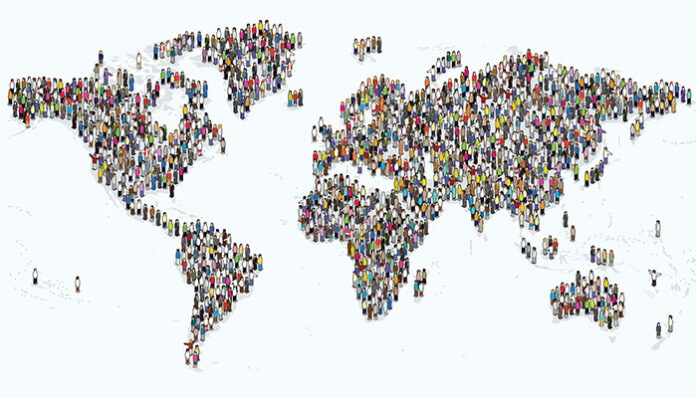World’s population hits 8 billion – UN
The world’s population has reached eight (8) billion people, the United Nations (UN) has said, warning of more hardship in store for regions already facing resource scarcity because of climate change.
Reaching eight billion people is “a sign of human success, but it’s also a great risk for our future,” said John Wilmoth, the director of the UN’s population division on Tuesday.
Middle-income countries, mainly in Asia, accounted for most of that growth, gaining some 700 million people since 2011.
India added about 180 million people and is set to surpass China as the world’s most populous nation next year.
Births have been steadily declining in the United States, Europe, and Japan. China, too, has struggled with the legacy of its One Child Policy programme and last year urged families to have a second and even third child as it also limited access to non-medical abortions.
But some of the world’s poorest countries, most of which are in sub-Saharan Africa, witnessed spikes in population as a result of higher fertility rates, putting their development goals at risk.
“The milestone is an occasion to celebrate diversity and advancements while considering humanity’s shared responsibility for the planet,” UN Secretary-General Antonio Guterres said in a statement.
The UN attributes the growth to human development, with people living longer, thanks to improvements in public health, nutrition, personal hygiene and medicine.
It is also the result of higher fertility rates, particularly in the world’s poorest countries — most of which are in sub-Saharan Africa — putting their development goals at risk.
– How many is too many? –
Population growth has also magnified the environmental impacts of economic development.
But while some worry that eight billion humans are too many for planet Earth, most experts say the bigger problem is the overconsumption of resources by the wealthiest people.
“Some express concerns that our world is overpopulated,” said United Nations Population Fund chief Natalia Kanem. “I am here to say clearly that the sheer number of human lives is not a cause for fear.”
Joel Cohen of Rockefeller University’s Laboratory of Populations told AFP the question of how many people Earth can support has two sides: natural limits and human choices.
Our choices result in humans consuming far more biological resources, such as forests and land, than the planet can regenerate each year.
The overconsumption of fossil fuels, for example, leads to more carbon dioxide emissions, responsible for global warming.
“We are stupid. We lacked foresight. We are greedy. We don’t use the information we have. That’s where the choices and the problems lie,” said Cohen.
However, he rejects the idea that humans are a curse on the planet, saying people should be given better choices.
– Slowing growth –
The current population is more than three times higher than the 2.5 billion global headcounts in 1950.
However, after a peak in the early 1960s, the world’s population growth rate has decelerated dramatically, Rachel Snow of the UN Population Fund told AFP.
Annual growth has fallen from a high of 2.1 per cent between 1962 and 1965 to below 1 per cent in 2020.
That could potentially fall further to around 0.5 per cent by 2050 due to a continued decline in fertility rates, the United Nations projects.
The UN projects the population to continue growing to about 8.5 billion in 2030, 9.7 billion in 2050 and peaking around 10.4 billion in the 2080s.
Other groups have, however, calculated different figures.
The US-based Institute for Health Metrics and Evaluation (IHME) estimated in a 2020 study that the global population would max out by 2064, without ever reaching 10 billion, and decline to 8.8 billion by 2100.
Follow the Neptune Prime channel on WhatsApp: https://whatsapp.com/channel/0029Va74ZvU2v1IqKByXoX3d
Do you have breaking news, interview request, opinion, suggestion, or want your event covered? Email us at neptuneprime2233@gmail.com


